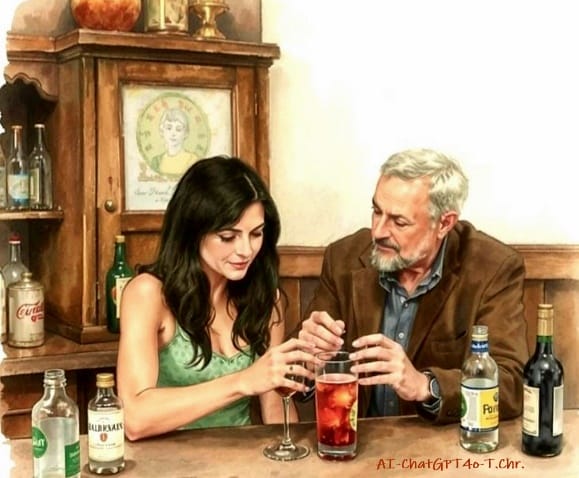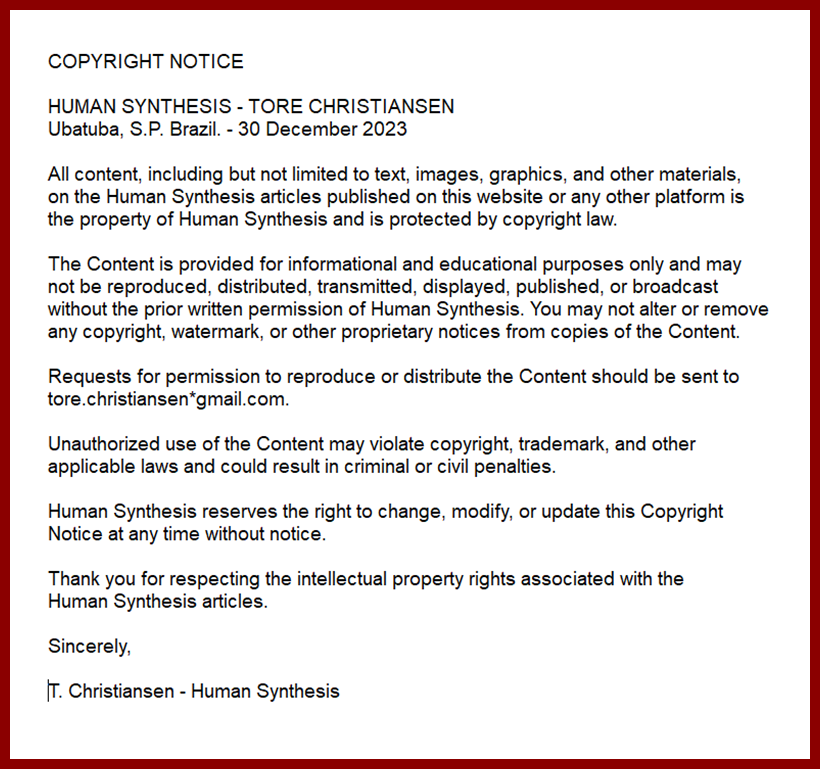CASS WAS THE MOST BEAUTIFUL GIRL IN TOWN.

By AI-ChayGPT4o-T.Chr.-Human Synthesis-30 May 2025 - Source Bukowski
Cass was the youngest of five sisters, and easily the most beautiful girl in town. She wasn’t conventionally beautiful—she was wild, half-Indian, half-fire, with long dark hair that spun like smoke around her when she moved. There was something snake-like about her, not in danger but in grace. Her body was lithe, fluid, and full of a kind of unspoken rhythm.
Her eyes could stare straight into a man, turn him inside out, paralyze him, or set him free. She moved like she knew she was a spirit caught in the wrong world. Most people didn’t understand her. Her sisters didn’t. They were jealous, whispering behind her back, saying she was wasting her beauty, wasting her life.
But Cass didn’t care what anyone thought. She painted, danced, molded clay with her bare hands. She laughed easily, drank hard, flirted with anyone she pleased. And still, somehow, she held herself apart from the men who desired her—she gave them a smile, a kiss, a flash of her fire, but never the key to the rest. We met in a bar, the way stories like this often begin. I was probably the ugliest guy there.
Maybe that’s why she sat down beside me. Or maybe it was just because she wanted to. That was the thing about Cass—she followed something inside her, and it wasn’t anything as simple as logic. I offered her a drink. She smiled and said yes. We sat there, sipping whiskey, and talking like we’d always known each other. There was no game, no pressure, no agenda. I liked her immediately.
Later that night, as I touched her waist and kissed her once, she asked, “Do you think I’m pretty?” I told her she was beautiful, yes, but it was more than that. She had a spirit like a flame that never went out. She looked at me strangely then, as if I had said something dangerous. And suddenly, she pulled out a long hatpin from her bag and stabbed it through her own nose, just above the nostrils.
I flinched, horrified, reaching out to stop the bleeding. “Why would you do that?” I asked. “To see if you still think I’m pretty.” I took the pin out gently, held a handkerchief to the wound, and told her yes, I did, and more than ever. She laughed then, and kissed me, still holding the cloth to her face. Her laughter was wild and sincere.
She came home with me that night. We didn’t sleep together right away. Instead, we lay in the dark and talked, and when I offered her coffee in the morning, she smiled, pulled me into bed, and said, “Now I want it.” And we made love like we were discovering something sacred. She was warm and fierce and generous. And I, who had never had a woman like her, didn’t quite know what to do with the gift of it.
From that day, she came to me often. I wasn’t working at the time, so I slept late, and each afternoon she would appear—always while I was in the bathtub—bringing a giant leaf from the park to “cover my thing,” she’d say, laughing. I came to expect her, and she never disappointed.When she wasn’t with me, Cass fought her own battles. Sometimes she got arrested—drunken fights with men who thought they owned her because they bought her a drink.
She’d call me from jail, and I’d bail her out, and she’d tell me how angry it made her that people only saw her body, not her mind. She said I was different. She said I listened. Then, one day, I left town. We’d had a fight—I don’t remember what about—and I took off for six months. Drifted. Tried to forget her. Failed. When I came back and walked into the old bar, she was there within the hour. Sat beside me like no time had passed.
“Bastard,” she said, smiling. “You’re back.” She wore a high-necked dress that day, something I’d never seen on her before. Under each eye, she had stuck the heads of two small glass pins. They glinted in the bar light. I reached for her face and said, “God, Cass, why are you doing this?” “It’s the fad,” she said. “Everyone’s doing it.” “Don’t lie to me. You’re trying to hurt yourself again. Stop trying to kill the thing that makes you you.” She looked at me a long time, then pulled the pins out and dropped them into her purse. “It makes you unhappy?”
“It does.” “I won’t do it anymore then,” she said, and meant it. We left the bar and went back to my place. Talked and drank and rediscovered each other. That was the magic of Cass—she was never fully known. She kept parts of herself just out of reach, like the end of a poem you could almost understand. When we made love again, it was with even more heat, more tenderness.
And when she pulled off her dress, I finally saw it—a thick, jagged scar running across her throat. She didn’t say anything about it. Neither did I. I just looked at her, and loved her, scar and all. Cass was the most beautiful girl in town. And for a little while, she was mine. We left the bar and went back to my place. Talked and drank and rediscovered each other. That was the magic of Cass—she was never fully known.
She kept parts of herself just out of reach, like the end of a poem you could almost understand. When we made love again, it was with even more heat, more tenderness. And when she pulled off her dress, I finally saw it—a thick, jagged scar running across her throat. She didn’t say anything about it.
Neither did I. I just looked at her, and loved her, scar and all. For a while, she stayed close. We were gentle with each other. But I could see it in her eyes—some part of her was always drifting, unreachable. She laughed less. Sometimes she’d stare at the ceiling for hours, as if searching for a way out.
Then, one morning, she was gone.
I heard about it a week later. A neighbor told me. Cass had locked herself in a small hotel room, swallowed a bottle of pills, and slipped away quietly, leaving no note, no explanation—just silence. They found her lying peacefully, as if she were sleeping off another night. But it was final this time. Cass—wild Cass, beautiful Cass, too much for this world—was gone. And I carry that with me still.
That I knew her, even briefly. That I saw the fire behind her eyes. That I held her while she fought the darkness. That she trusted me enough to let me see her broken edges. That maybe love wasn’t enough to save her—but it was real. Cass was the most beautiful girl in town. And for a little while, she was mine.
A Philosophical Reflection on Their Bond.
The friendship between Cass and the narrator was not built on the usual foundations of stability or shared plans—it was something more fragile, more elemental. It was a communion of two flawed, drifting souls who recognized in each other a rare, private kind of truth. Cass, with her reckless beauty and her secret wounds, existed outside the rules of the world.
She had the look of someone born too sensitive for this earth, someone who felt too much and too deeply. The narrator, with his hardened cynicism and weary detachment, had stopped expecting anything genuine from people long ago.
And yet, Cass broke through that armor.
What passed between them was never polished or well-defined. It was erratic, impulsive, full of missteps and silences. But it was real. In a world that so often rewards pretense, they allowed each other to be fully human: scarred, raw, unfiltered. Cass wasn’t just a muse; she was a mirror. She reflected back to him what he no longer dared to feel—innocence, pain, and the raw ache of longing.
Their friendship asked no promises. It didn’t seek permanence. It was a flicker in time, like lightning over a dark sea—brief, stunning, unforgettable. And perhaps that’s what made it so meaningful. In that short stretch of days and nights, they touched something timeless: the understanding that connection doesn’t need duration to be deep.
Sometimes, a few conversations and a shared silence can echo louder than years. Cass’s suicide did not undo their bond; rather, it cast it in sharp, unforgiving light. It revealed the limits of love when set against despair—but also its quiet power. Though he couldn’t save her, the narrator had, for a while, made her laugh again, feel wanted, feel seen. In a life full of masks and rejection, she found someone who didn’t try to fix her or cage her. He simply accepted her.
And that, perhaps, is the highest form of friendship: not rescuing someone from the storm, but sitting with them in the rain, saying, “I see you. I won’t run.” Cass and the narrator were two sides of the same truth. They met in the space between loneliness and love—and though their time was brief, it was enough to leave a mark that would never fade.
